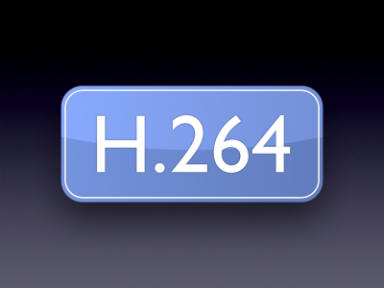H.264 is a very cool compression standard indeed, and intimately familiar to most Mac users as Apple’s own codec of choice for iTunes, Quicktime and the iPod. It’s also the codec driving YouTube and Vimeo, and the one used for streaming HTML5 video by both Google Chrome and Apple Safari.
The only problem? H.264 is neither free nor open-source. If you’re Apple and you want to use H.264 to serve HTML5 video in your browser, you need to pay MPEG LA, the owners of the codec, a $5 million licensing free. This has raised some eyebrows by the likes of Mozilla Firefox, who want HTML5’s video compression standard to be the free, open-source Ogg Theora. Their argument, summarized, is it’s foolish to build the next decade’s internet video standards upon the back of a licensed codec when there’s a free alternative that works nearly as well.
Today, MPEG LA confused the debate a bit by announcing that H.264 will stay royalty-free for free Internet Video until 2016…. but while it probably ends the Internet Video codec battle, it’s not a development that ends the debate.
As I understand it, here’s what MPEG LA’s extension means: if you are building a browser that support HTML5 video using the H.264 codec, you still need to pay the licensing fee… but sites serving H.264 internet video don’t have to pay anything for the next six years. If you charge for your video, you need to pay; if you want to support H.264 HTML5 video in your browser, you have to pay.
In other words, the next five or six years offers H.264 more time to become an entrenched Internet video standard. At the end of that six years, though, MPEG LA can start collecting their licensing fees from video sites who are serving up all their video using HTML5 and H.264.
Now, MPEG LA might extend their licensing-fee waiver indefinitely… but there’s the chance they won’t. That uncertainty principle should at least raise an eyebrow. If H.264 becomes the Internet video standard by 2016, this five year amnesty might be a very lucrative gamble on the part of MPEG LA: they will be able to draw upon a much larger and more entrenched Internet video user base.
In the end, though, the concerns are probably moot: H.264 is already Internet video’s entrenched standard, and while Mozilla’s got some very real and eloquently stated objections to H.264, I think it’s already too late. Mozilla’s fighting not a losing battle, but a battle already lost.


